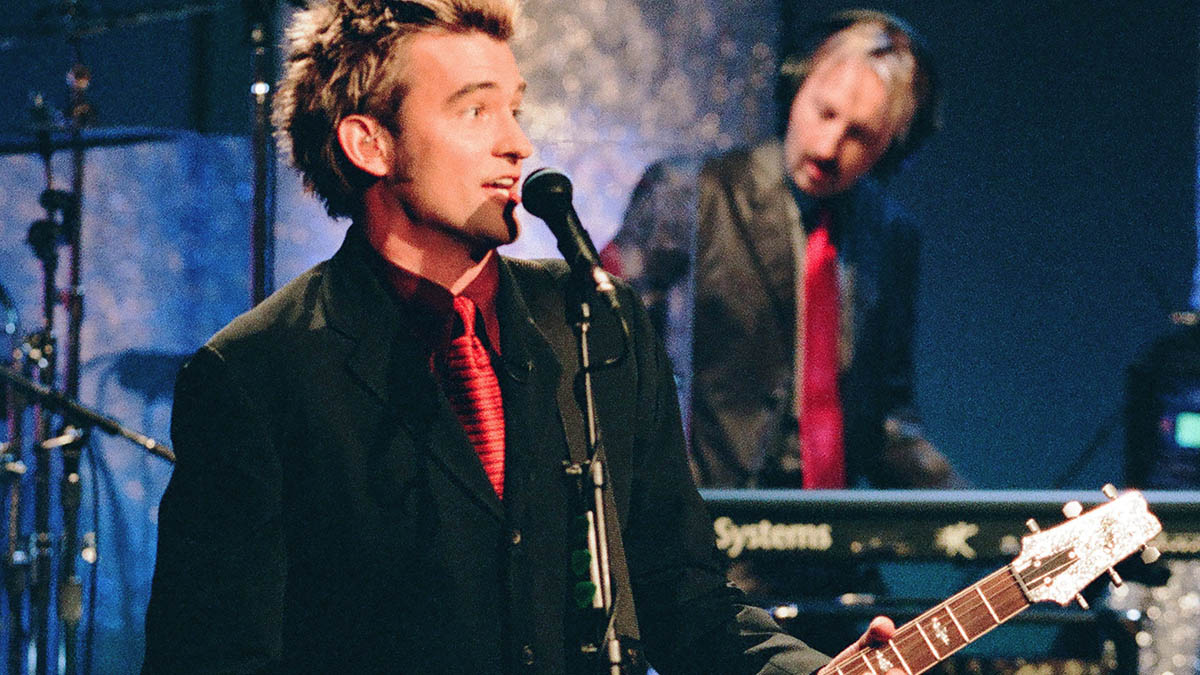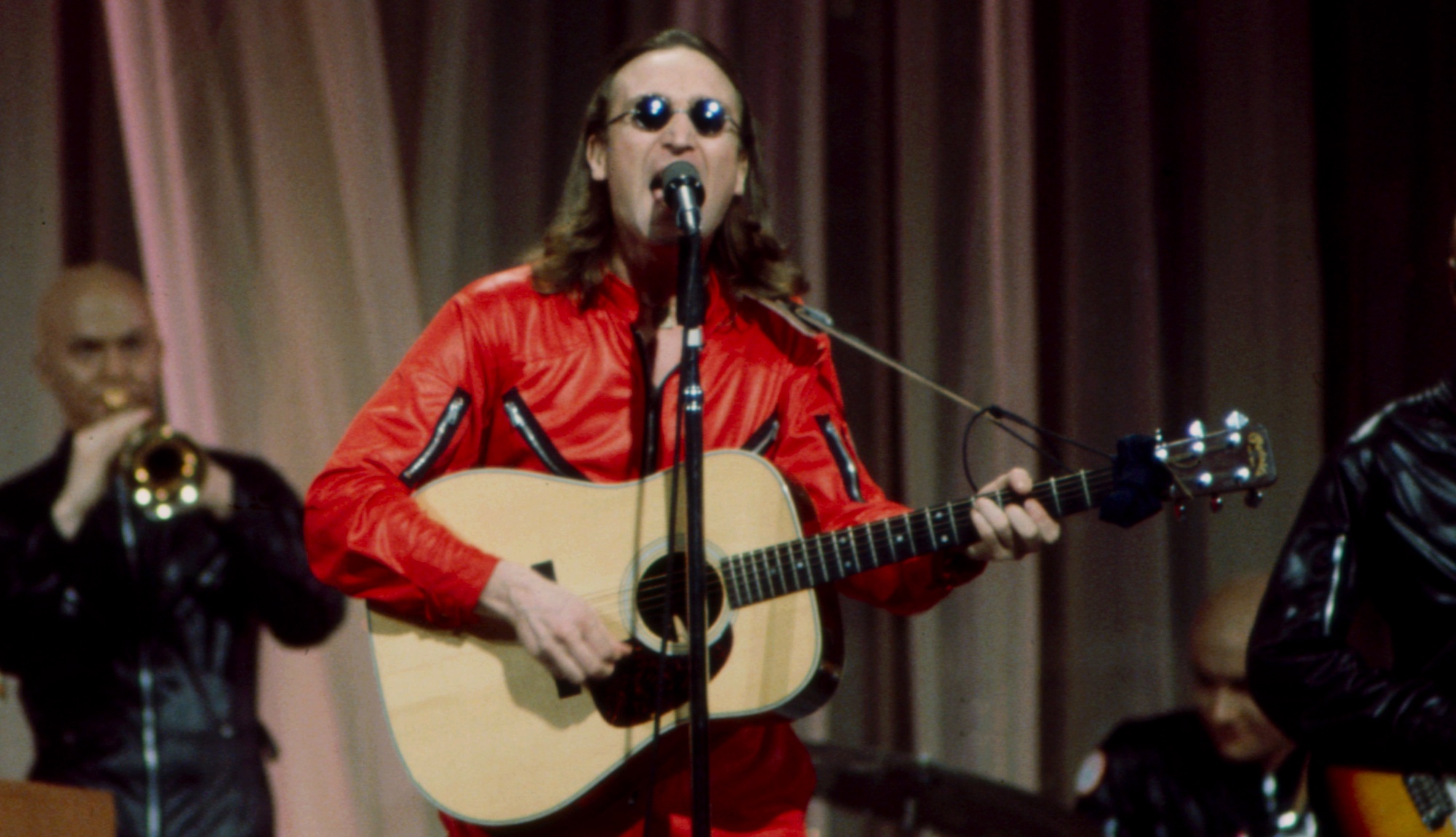“We fit the definition of a one-hit wonder, but I look at it as being lucky enough to have written a song that’ll be remembered forever”: Brian Vander Ark on how The Freshmen changed lives, including his own
Determined as he moves out of the shadow of his past, the guitarist recounts the origins of the Verve Pipe and the recording of a definitive '90s anthem, The Freshmen

All the latest guitar news, interviews, lessons, reviews, deals and more, direct to your inbox!
You are now subscribed
Your newsletter sign-up was successful
Hailing from East Lansing, Michigan, the Verve Pipe’s Brian Vander Ark and his cohorts quickly built a following among a vibrant Midwest indie rock scene. The recording of 1993’s Pop Smear did nothing to slow the momentum of the young band, leading to their signing a deal with RCA, a label that saw the Verve Pipe as its ticket to the top of the alt-rock charts.
“I think the whole reason RCA wanted us, to be honest, was that they were severely lacking in rock bands at the time,” Vander Ark says.
“They had Dave Matthews, who no one knew at the time, and they had ZZ Top, but they weren’t relevant at that point. We got a ton of attention from RCA because they had hung their hopes on us. I remember going into that album; I was living in a storage unit with all our gear because I’d been kicked out of my apartment. That’s when I started writing.”
With a record deal in hand and his creativity invigorated, Vander Ark put pen to paper, crafting the songs that would lead to the Verve Pipe becoming alt-rock darlings in the wake of Villains (1996). For the members of the Verve Pipe, the sudden success of Villains, linchpinned by the unexpected smash hit The Freshmen, brought forth incredible pressure to continue to deliver.
“I wanted to write another hit song, and Hero from The Verve Pipe [1999] did OK, but it wasn’t in the cards for us,” Vander Ark says.
“I wrote another song from that same album called The F Word, which is my sort of commentary on how fleeting it all can be. I was a bit bitter at the time, but I got over that. It’s like I said; The Freshmen came about when I knew nothing about songwriting, but I still managed to create something poignant with an enduring message.”
Now 27 years later, Vander Ark no longer harbors the bitterness and anger that led to the Verve Pipe falling mostly silent for years in the wake of their biggest hit. Now as creative as ever, the contemplative rocker is embracing his legacy, basking in the glory of “The Freshmen” in all its ’90s glory.
All the latest guitar news, interviews, lessons, reviews, deals and more, direct to your inbox!
“I’m not bitter anymore. I’m happy to be still riding the wave of The Freshmen, ” he says. “I feel nothing but pride and happiness when I play it. I know it brings a lot of joy to people, and it’s one of those songs that allows people to remember where they were during that period. It seems to hit our fans harder now because they’re no longer kids in high school and college. They’re adults – and they get the meaning of it all.”
How did the Verve Pipe get together?
The early ’90s was a crazy time to be in an “alternative rock band.” It seemed like a major label was signing every band, so that was the focus for us
“My brother Brad [Vander Ark] and I formed a band called Johnny with an Eye, mostly playing cover tunes with some original stuff. And there was another band called Water for the Pool, which got all the local weekend gigs and a strong following. That band, which had Donny [Brown] in it, was doing well while me and Brad were playing Tuesday nights in dive bars. We were great admirers of theirs, and we decided we wanted to try to form a band with them.
“One evening, we approached Donny and said, “What do you say we break up our bands and form a new one? We’ve got all this new material; we’re recording an album. Let’s break up our bands, take the members we want, combine a fan base and make a go of it.” We took Donny, the drummer, from Water for the Pool and found A.J. [Dunning] for guitar. Brad played bass, and I sang and played guitar. That would have been August of ’92.”
How did the recording of Pop Smear prepare you for what was to come?
“Back then, I wrote most of the lyrics, which weren’t particularly great. I like some of the stuff, but when I listen to Pop Smear, it’s cringeworthy. What I do hear in that record is – even back then – I was a storyteller. I’ve always liked to tell stories with my lyrics.
“But what clicked during Pop Smear was finding a way for my guitar to help me tell the story. For a long time, there was a disconnect between the story in my head and what my fingers were trying to convey. I think, at least in some ways, I started to put that all together on
“The early ’90s was a crazy time to be in an “alternative rock band.” It seemed like a major label was signing every band, so that was the focus for us. It happened quickly for us, but it wasn’t without hiccups. There were seven or eight major labels interested in us, and they all passed after coming to check us out. They passed even though we sold 10,000 CDs on our own. So we said, 'We don’t need them. We’ll keep running our own little business. We’ll wait.'
“But as soon as we decided to go it alone, RCA came sniffing around. They liked what they heard, we liked what they had to say, and they said, 'Here’s a four-album deal; sign here.' Then new struggles came – playing cities we didn’t know to crowds bigger than we’d ever seen. We’d play campus shows, and kids would be freaking out, asking us to sign CDs; it was crazy.”
Set the stage for recording what would be the Verve Pipe’s defining album, Villains.
“It was a hard time, but I rolled up my sleeves and toughed it out. It was worth it because more than half of Villains was written in the storage unit I was living in. Being secluded did something to my brain, and that’s probably a big part of why those songs resonate. I sent the demos to RCA, and they flipped out and said, ‘We need you in the studio now.’
“They hooked us up with Jerry Harrison from the Talking Heads, and we recorded the album. I went from living in a storage unit to sharing a house with the other guys while recording an album with a budget of $250,000. It was ludicrous, but it was a blast.”
The Freshmen was a phenomenon and is still revered. Did you grasp what you had at the time?
“As I was writing it, I thought, ‘This is pretty good,’ but I didn’t know what I had until after it was entirely written. Then, once we started playing it live, I became excited about it.
“But The Freshmen as we know it today is not what it was when it first came about. I wrote that in ’92, and then we reworked it for Villains. I knew I had something early on, even though the lyrics were all messed up; after shows, people would ask, ‘Hey, what was that song about the girl touching her face?’ [Laughs]”
What led to the decision to rework the song for Villains?
“I always loved the song, but I wasn’t ever thrilled with it. I think RCA also saw potential in it as a song that could be redone and successful. The original ’92 version sounded dated and was done with my beat-up Gibson acoustic.
“I knew that if we were gonna redo it, we’d have to grunge it up a bit. Once we got in the studio with Jerry, I got my Les Paul out, and we all got in a room together and recorded it live in the studio. It’s that version that everyone seems to remember over the original.”
Can you recall anything else about that Les Paul or your approach?
“It was a Les Paul Standard, which I still use. I was never too technical; I use the guitar to help me tell the linear story I am trying to relay with my lyrics. The guitar is a backdrop to the story, and that’s how I approach it.”
What about The Freshmen has allowed it to endure?
“I wish I knew. I was a neophyte songwriter and not a very good guitar player, which frustrates me when I listen back. I’ve gotten so much better in both areas, and now, when I listen back to it, so many things about that song make no sense to me.
“But my ineptitude was fortunate because had I continued to mess with it, I don’t think it would’ve been a hit song. I guess the ambiguity works, and the fact that anybody can take what they think the song is about and make it their own makes it so popular.”
So you wouldn’t change it if given a chance?
“I don’t think I would. I was a neophyte songwriter, but that song is pretty damn heavy. It’s about abortion, suicide and these bad things that I crammed into one song, which is yet another neophyte mistake. But I didn’t say the word ‘abortion,’ and I didn’t hit people over the head with the pro-life message, and I think that worked because people discussed it, trying to figure me out.
Tthat song is pretty damn heavy. It’s about abortion, suicide and these bad things that I crammed into one song, which is yet another neophyte mistake
“Here we are all these years later, still discussing all the same stuff, so in a way, The Freshmen is more poetic than I ever could have imagined. It’s loaded with metaphors I’d never be able to pull off now because I’m not that person anymore.
“That’s probably why I’ve seen a lot of subsequent failures because as I became a better writer, things got more specific, and when you get more specific, you alienate people. That probably worked to our detriment.”
Does being labeled a “one-hit wonder” bother you?
“We lay that on artists because even if they only had one song, having one truly great song is more than most artists ever get to do. I guess we fit the definition, but I look at it as being lucky enough to have written a song that’ll be remembered forever. That one song still resonates to this day; that’s validation.”
Andrew Daly is an iced-coffee-addicted, oddball Telecaster-playing, alfredo pasta-loving journalist from Long Island, NY, who, in addition to being a contributing writer for Guitar World, scribes for Bass Player, Guitar Player, Guitarist, and MusicRadar. Andrew has interviewed favorites like Ace Frehley, Johnny Marr, Vito Bratta, Bruce Kulick, Joe Perry, Brad Whitford, Tom Morello, Rich Robinson, and Paul Stanley, while his all-time favorite (rhythm player), Keith Richards, continues to elude him.

